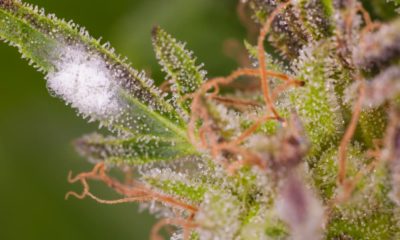Some cannabis cultivators are increasingly turning toward organic farming methods. And in Colorado, a small coalition of such growers alongside industry trade groups have convinced the state to establish an organic-like classification for weed. The new designation would apply to cannabis products grown without pesticides, GMOs and other toxic or synthetic chemicals. Growers say consumers deserve to know they have organic options at the dispensary.
Growers Want Consumers To Know About Organic Cannabis
Prior to legalization, cannabis producers didn’t have to give much thought to the regulatory standards other agricultural and medical products had to meet. But legalization brings oversight, regulations, licensing requirements—all the usual elements of doing business and selling goods to the public. But as states have begun to enforce those new regulations on the cannabis industry, the results have been revealing.
In California, for example, almost 20 percent of products tested under the state’s updated regulations failed to pass. And while labeling issues were the principal cause, contamination from mold, yeast and pesticides was also a problem. With an older legal industry, Colorado’s cannabis testing requirements are already some of the most stringent in the country.
Furthermore, marijuana is entering the mainstream via health and wellness products. In other words, cannabis has been sanitized in the popular imagination not just as a relatively harmless alternative to other recreational substances but also as clean, therapeutic and healthful.
Combined, these consumer trends and heightened regulations are prompting cannabis growers to adopt organic weed cultivation methods. Indeed, many small-scale and artisan growers already have. But there hasn’t been any mechanism to officially recognize organic versus conventionally grown cannabis products—until now.
Colorado Creates Its Own Organic Cannabis Designation
When “organic” shows up on food or another agricultural product, it’s simply designating that the product has been produced through the methods the USDA approves. In short, organic is simply a labeling term. It’s marketing. And essentially, it means that growers have not used toxic or synthetic fertilizers, GMOs, antibiotics, synthetic growth hormones, or artificial colors/flavors/preservatives.
Of course, cannabis growers around the country already employ organic growing methods. But there’s just one problem with labeling those cannabis products as such: federal prohibition. Because the federal government considers cannabis an illegal Schedule I controlled substance, the USDA can’t approve any cannabis products as organic.
And that’s why Colorado decided to create its own organic cannabis designation. At the request of growers, The Colorado Department of Public Health and Environment is creating an “organic-like” classification for cannabis produced in the state. Colorado already bans dozens of pesticides and tests cannabis products for 13 of the most common pesticides. That ban has moved many of Colorado’s growers toward organic methods by default. In lieu of banned pesticides, growers have turned to adopting substances with Organic Materials Review Institute ratings.
For Colorado’s cannabis industry, the organic certification can help recognize organic efforts and let consumers know that they have choices when it comes to the source of their cannabis. Whether organic is superior to conventional, however, is still up for debate. But considering the increased risks of inhaling combusted pesticides in contaminated weed, health-conscious consumers may pay a premium for organic.



















